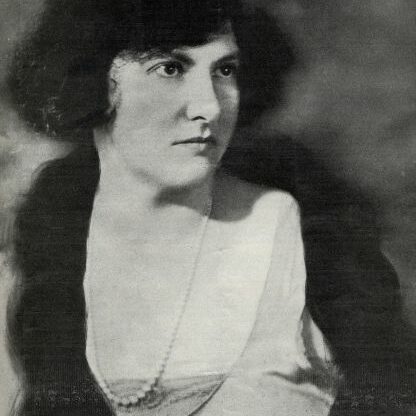
Theorist Information
Birth - August 15, 1882 | Walla Walla, Washington, USA
Death - August 9, 1955 | South Hadley, Massachusetts, USA
Nationality - American
Era - Modern
Theorist Biography
Marion Eugénie Bauer was an American composer, teacher, writer, and music critic. A contemporary of Aaron Copland, Bauer played an active role in shaping American musical identity in the early half of the twentieth century.
As a composer, Bauer wrote for piano, chamber ensembles, symphonic orchestra, solo voice, and vocal ensembles. She gained prominence as a teacher, serving on the faculty of New York University (then Washington Square College) where she taught music history and composition from 1926–1951. In addition to her position at NYU, Bauer was affiliated with Juilliard as a guest lecturer from 1940 until her death in 1955. Bauer also wrote extensively about music: she was the editor for the Chicago-based Musical Leader and additionally authored and co-authored several books including her 1933 text Twentieth Century Music. Besides being one of the first textbooks to discuss serialism, Twentieth Century Music also mentioned numerous women composers in contrast to other contemporary music textbooks which only briefly mentioned women composers, if they were mentioned at all. Bauer’s book also discussed modernist works by African American composers and included jazz in its discussion of twentieth-century music.
Throughout her life, Bauer promoted not only her own work but new music in general. Bauer helped found the American Music Guild, the American Music Center, and the American Composer’s Alliance, serving as a board member of the latter. Bauer additionally held leadership roles in both the League of Composers and the Society for the Publication of American Music as a board member and secretary, respectively. Very often, she was the only woman in a leadership position in these organizations.
Bauer’s music includes dissonance and extended tertian, quartal, and quintal harmonies, though it rarely goes outside the bounds of extended tonality, save for her brief experimentation with serialism in the 1940s. During her lifetime, she enjoyed many performances of her works, most notably the New York Philharmonic premiere of Sun Splendor in 1947 under the baton of Leopold Stokowski and a 1951 New York Town Hall concert devoted solely to her music.
See Also
- Marion Bauer biography at the Jewish Women’s Archive:
https://jwa.org/encyclopedia/article/bauer-marion-eugenie - https://en.wikipedia.org/wiki/Marion_Bauer#Written_Works

